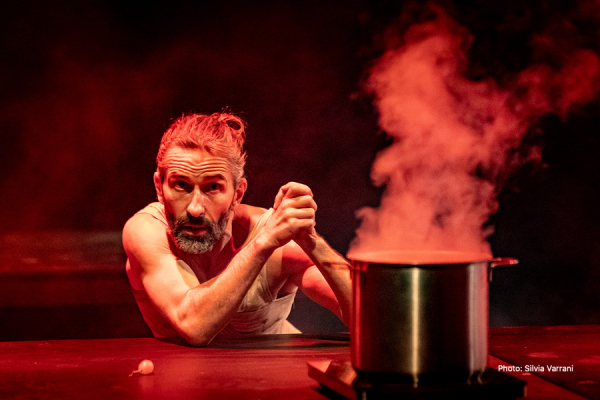
PEAK MYTIKAS (On the top of Mount Olympus) MITEM 18
The highest peak of Mount Olympus is called Mytikas. A Greek word for Nose. As the gods live on that mountain, the Nose is the nose of all the gods. They enjoy the smells that come from the humans, who live in the valley, on the earth. The humans sacrifice herbs, animals and other humans. They forge weapons and make war. War smells, death smells, love smells. The gods enjoy the fragrance of the world.
Our host is the lovely gender-fluid god: Dionysus. They introduce us to the world of raves. They celebrate all human things: love, peace, unity and respect, briefly p.l.u.r., but the opposite as well: hatred, struggle, disharmony and contempt. In this spectacle, everything is possible: the fulfillment of enchanting dreams and vicious grief, of cheerful love and horrible pain. The spectacle is a catharsis, a purification: face the worst, and be cleansed.
Life and death are interchangeable. Old, dead heroes appear and revive their lives. Oedipus, for example, the tragic king who killed his father and married his mother, he who tried to escape from his fate and on the contrary embraced it, he who poked out his eyes because he didn’t want to see the world anymore. But is he really blind? Or is he just a coward like all of us? And his daughter, Antigone, the first woman who dared to say ‘no’ to the power of politics and war, the first anarchist in history, how does she look at our world?
They are not dead, they live amongst us, and they ask the same old questions.
From ancient times another anarchist appears Prometheus, the man who dared to climb the Mytikas and insulted the gods by stealing the arrows of the lightning and giving them to the mortals. He who wanted to liberate mankind and paid a terrible price for it. What is his message to us, after all those centuries of torments?

